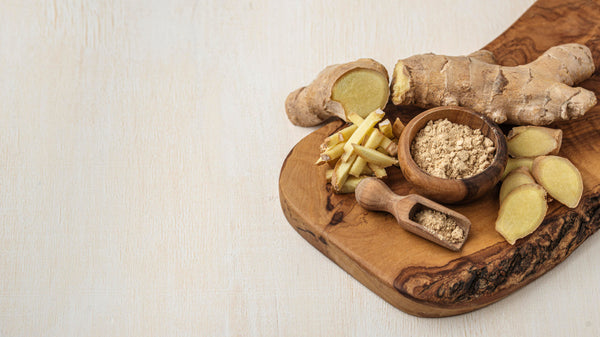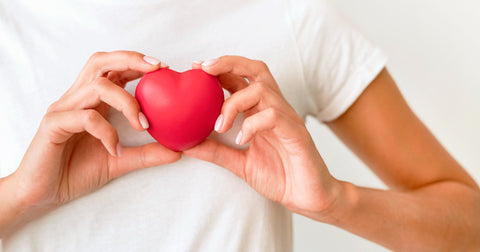WARNING: If you are already on blood-thinning medication you need to be very careful if you decide to use listed below natural blood thinners together with the anticoagulant medication (such as warfarin).
Here is a good advice written by Dr Andrew Weil, MD: “If you do decide to use one of these substances in conjunction with anticoagulant drugs – to possibly lower your dose of that medication – you must be extremely careful that you’re not getting too much blood-thinning activity.
One of the major Coumadin (warfarin) side effects is an increased risk of bleeding (often signalled by blood in the stool or urine, bleeding gums, or easy bruising). Because natural substances with blood-thinning activity may also carry this side effect, taking them together with anticoagulant drugs may further increase the risk of bleeding.
For these reasons, if you’re taking an anticoagulant drug along with a natural blood thinner, do so only under the supervision of your physician, who can monitor your bleeding and clotting times “.

Nature photo created by freepik - www.freepik.com
Natural Blood Thinners
- Cayenne pepper can have a powerful blood-thinning effect because of the high amount of salicylates. It can be taken in capsules or easily ground up as a spice for food. In addition to thinning the blood, cayenne pepper can help relax blood vessels thus lowering blood pressure and improving circulation.
- Vitamin E may help reduce blood clotting (depending on the amount taken). Because of that anticoagulant effect, experts suggest that people who are taking blood-thinning drugs such as Coumadin (warfarin) should avoid taking large doses of vitamin E. Unfortunately, it is not clear how much vitamin E thins the blood. Some suggest that taking high doses of vitamin E supplements, for example, above 1,500 IU daily, on a long-term basis, may have negative effects.
- Ginkgo biloba has been known to improve blood circulation and thin the blood. Some sources suggest that it also has a fibrinolytic effect which means it may help dissolve blood clots. (>)
- Rutin (Vitamin P) is the most important vitamin for the vain health. Investigators at Harvard-affiliated Beth Israel Deaconess Medical Center found that rutin may prevent blood clotting or thrombosis (according to animal studies). Deep vein thrombosis (DVT) is particularly dangerous because it can cause life-threatening complications, such as pulmonary embolism (blockage of the pulmonary vein). It was found that rutin inhibits secretion of certain protein namely disulfide isomerase (PDI), which is released by platelets and endothelial cells during thrombosis. By blocking the release of this protein, rutin has proved to block thrombosis in mice. (>)
- Research suggests that Bromelain has the ability to thin the blood, break down blood clots, and reduce clot formation. Bromelain (from fresh ripe pineapples or supplements) administration stopped blood platelet aggregation and prevented clot formation. (>)
- According to one study, Turmeric‘s main curative ingredient, Curcumin, works on platelets to prevent clots from forming. (>)
- Ginger belongs to the same family as turmeric and contains salicylates, acids found in various plants. Acetyl salicylic acid (aspirin) is derived from salicylate and is often used to help prevent stroke by thinning blood. However, natural foods and herbs containing salicylates, such as ginger, cayenne pepper, turmeric, garlic, oregano, licorice, ginkgo, onion, avocados, and cherries, also help thin the blood and prevent it from clotting but without causing bad side effects.
- Dong quai, known as female ginseng, is traditional Chinese herb that seems to reduce blood clotting. Studies on animals suggest that it may significantly increase the length of time it takes blood to clot. This effect may be the result of the coumarin content. (>)
- Ajoene, a compound released from Allicin when garlic is crushed or chopped prevents blood clotting.
- Silica (bamboo extract) and Bioflavonoids may help prevent excessive blood clotting.
- Other herbs helpful in coping with blood clotting: Angelica, Anise, Fenugreek, Ginseng, Motherwort, Myrrh.

Nature photo created by freepik - www.freepik.com
Nutritional & Lifestyle Recommendations
- Eat more raw vegetable salads and smoothies and fresh fruits (but don’t eat veggies and fruits at the same meal). The influence of a healthy diet on the development of deep vein thrombosis (DVT) was assessed over a 12 year period in almost 15,000 black and white patients from North Carolina, Mississippi, Minnesota, and Maryland. After 12 years it was found that increased intake of fruits and vegetables was associated with approximately about 50% lower risk of DVT. Moderate consumption of red and processed meat was associated with about a 20% increase in the risk of DVT, but people with high consumption of red and processed meet had a 200% increase in DVT risk! One study also found that gut bacteria reacts to compound in eggs and meat, producing a chemical (known as TMAO) that increases DVT and heart disease risk by making the blood more prone to clotting.
- Avoid or at least significantly reduce consumption of dairy and meat products as they thicken the blood. In a study done at the University of Georgia at Athens rats fed a diet high in milk protein were found to have increased rate of blood clotting. The researchers concluded that the diet high in animal protein (meat, dairy, etc.) caused sensitizing of the metabolic factors that might initiate clotting inside blood vessels.
- Drink 3 times a day about 3 glasses of filtered or even better distilled water (with a pinch of a sea salt or pink salt) between meals. This may not sound like a blood thinner but it works. Dehydration can lead to thickening of blood, which increases the risk of developing a blood clot.
- Drink 1 or 2 glasses of fresh raw and possibly cold-pressed vegetable juices (carrots, beets, broccoli, kale or spinach, etc.) 2 times a day before meals.
- Exercise or walk every day to improve blood circulation.
- Learn to control stress.
Related Articles:
Sources
- http://www.everydayhealth.com/news/surprising-risks-deep-vein-thrombosis/
- https://www.mayoclinic.org/tests-procedures/prothrombin-time/about/pac-20384661
Any information or product suggested on this website is not intended to diagnose, treat, cure or prevent any medical condition. Never disregard medical advice or delay in seeking it because of something you have read on this website. Consult your primary healthcare physician before using any supplements or making any changes to your regime.




